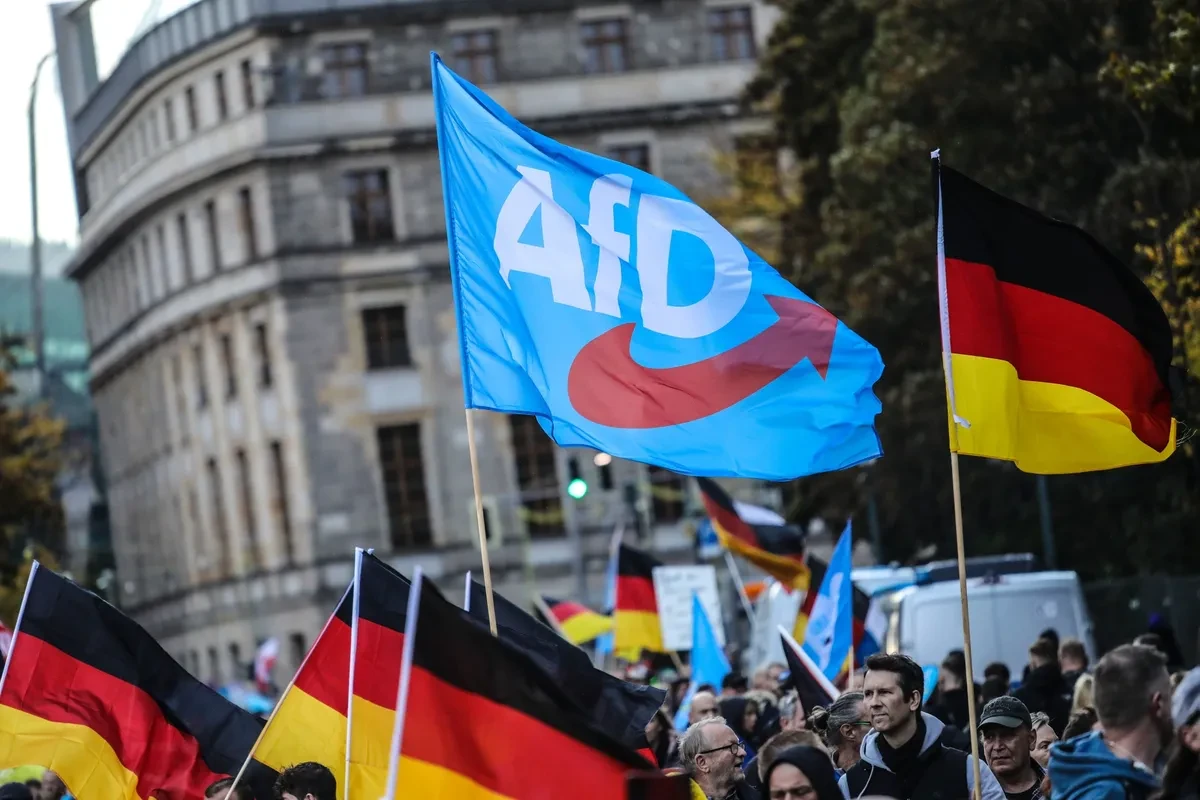German lawmakers push to ban far-right AfD party amid rising popularity
 Supporters hold flags and a placard during a campaign of right wing Alternative for Germany (AfD). (Courtesy of Bloomberg)
Supporters hold flags and a placard during a campaign of right wing Alternative for Germany (AfD). (Courtesy of Bloomberg)
A group of 113 German lawmakers from multiple political factions has submitted an application to initiate proceedings to ban the far-right Alternative for Germany (AfD) party, German public broadcaster ZDF reported Wednesday.
Marco Wanderwitz, a conservative lawmaker from the center-right Christian Democratic Union (CDU), confirmed that the application has been submitted to the German parliament’s President, Bärbel Bas. Wanderwitz stressed the urgency of the matter, citing the upcoming election as a critical factor in the timing of this action.
The lawmakers’ goal is to have the application voted on during the current legislative period, which could potentially allow the Federal Constitutional Court to begin proceedings, according to Wanderwitz.
Uncertain path forward and failed attempts
It remains unclear when or if the application will be formally addressed on the parliamentary agenda.
Under the German constitution, the Bundestag (parliament), the Bundesrat (Federal Council), or the government can apply to the Federal Constitutional Court to ban a political party if its goals are deemed anti-constitutional or if it engages in anti-democratic behavior.
Historically, attempts to ban far-right parties have faced setbacks due to legal issues or insufficient evidence. The Federal Constitutional Court rejected a 2003 bid to ban the far-right National Democratic Party (NPD) due to the use of party officials as informants for the domestic intelligence agency.
A second attempt in 2017 to outlaw the NPD also failed when the court found the party lacked the potential to carry out its anti-constitutional activities.
AfD’s rising popularity in Germany
The AfD has seen its popularity surge in recent years, capitalizing on anti-migration sentiment, fears of Muslims and immigrants, and widespread dissatisfaction with Chancellor Olaf Scholz’s coalition government. The party has also leveraged concerns about an economic downturn.
A poll conducted by Forsa Institute on Tuesday revealed that 17% of Germans intend to vote for the AfD, making it the second-largest party after the CDU/CSU bloc at 33%.
The Social Democratic Party (SPD) of Chancellor Scholz was at 16%, while the Greens stood at 11%. The Free Democratic Party (FDP), which left the coalition government last week, registered at 4%, falling below the 5% threshold required for parliamentary representation.



